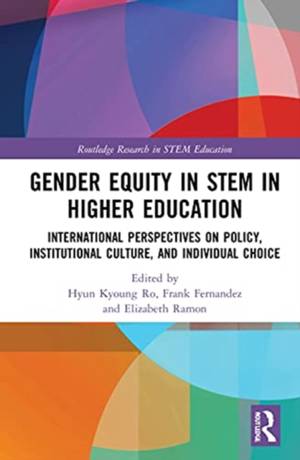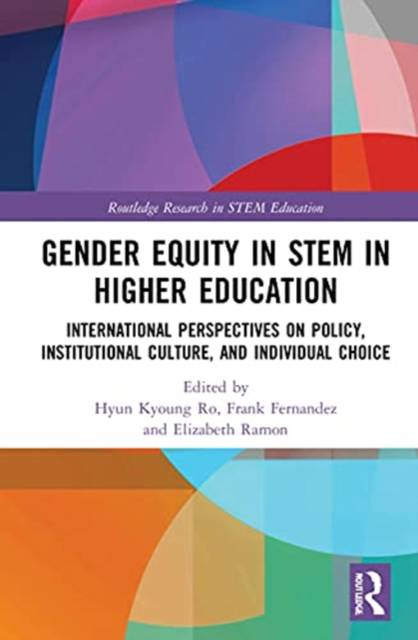
- Retrait gratuit dans votre magasin Club
- 7.000.000 titres dans notre catalogue
- Payer en toute sécurité
- Toujours un magasin près de chez vous
- Retrait gratuit dans votre magasin Club
- 7.000.0000 titres dans notre catalogue
- Payer en toute sécurité
- Toujours un magasin près de chez vous
Gender Equity in Stem in Higher Education
International Perspectives on Policy, Institutional Culture, and Individual Choice
Description
This timely volume brings together a range of international scholars to analyse cultural, political, and individual factors which contribute to the continued global issue of female underrepresentation in STEM study and careers.
Offering a comparative approach to examining gender equity in STEM fields across countries including the UK, Germany, the United States, Hong Kong, Taiwan, South Africa, and China, the volume provides a thematic breakdown of institutional trends and national policies that have successfully improved gender equity in STEM at institutions of higher education. Offering case studies that demonstrate how policies interact with changing social and cultural norms, and impact women's choices and experiences in relation to the uptake and continuation of STEM study at the undergraduate level, the volume highlights new directions for research and policy to promote gender equity in STEM at school, university, and career levels.
Contributing to the United Nations' (UN) 2030 Agenda for Sustainable Development, this text will benefit researchers, academics, and educators with an interest in science education, higher education, and gender equity in STEM fields. The text will also support further discussion and reflection around multicultural education, educational policy and politics, and the sociology of education more broadly.
Spécifications
Parties prenantes
- Editeur:
Contenu
- Nombre de pages :
- 228
- Langue:
- Anglais
- Collection :
Caractéristiques
- EAN:
- 9780367512934
- Date de parution :
- 12-07-21
- Format:
- Livre relié
- Format numérique:
- Genaaid
- Dimensions :
- 152 mm x 229 mm
- Poids :
- 512 g

Les avis
Nous publions uniquement les avis qui respectent les conditions requises. Consultez nos conditions pour les avis.





